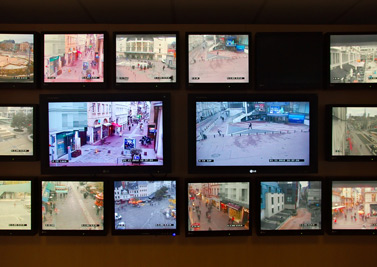In the year of the drone, the Sochi Olympics, and ever-expanding knowledge of the NSA’s long arm, we seek to explore free expression’s meanings and limits. Writers, artists, journalists, political dissidents, and others across the globe find themselves visibly, violently, and systematically silenced with detention, exile, death, and other forms of oppression.
For this themed special issue, made possible by the Open Society Foundation and a collaboration between Guernica and Free Word in association with Article 19 and English PEN, we commissioned writers and artists the world over to address freedom of expression’s less explored areas. What forces obstruct expression? Where—whether geographically or intellectually, in memory or in cyberspace—do we think we might be “free” but indeed face restrictions? And where might freedom of expression still, or newly, exist in unexpected ways? Can freedom of speech exist in an age of surveillance, and for whom?
As a magazine, we aspire to host conversation and debate, and with this, our first of five themed issues this year, we hope to spark provocative discussion. In this issue, Ece Temelkuran reveals the surprising weapon, as parochial as it is powerful, that Turkish protestors turned against their government. Ariel Dorfman examines the similarities between Pinochet’s Chile and a Patriot Act-governed America. Mirza Waheed looks at what happens to dominance and discourse when the descendants of the colonized control the imperial nation-state. Gillian Slovo defends the right to hear the maligned, from Guantanamo and South Africa, asking, “Are some acts so revolting that the people who commit them do not deserve a hearing?” Rebecca MacKinnon raises questions about corporate cyber-power and censorship. And in dissident writings translated for the first time into English, Tiananmen Square student protest leader Hu Ping forces a distinction between vibrant freedom of speech and the mere tolerance of criticism. He writes: “A regime which has the power to ban all critical opinion will forever have the support of the ‘people,’ because it has defined all dissenting opinion as being not of the ‘people.’”
Masha Gessen tells Meara Sharma why she felt she had to leave her homeland to protect her children and how she’s helping smuggle stories about gay life into an increasingly intolerant Russia. Emily Parker and Yiyun Li debate the conflict between justice and freedom, in China and in the United States. Kamila Shamsie and Pankaj Mishra rethink literary rebellion in repressive societies.
There’s so much more in our offering here, and we hope it’s only the beginning of a wide and ongoing conversation. In this issue, and in this, our tenth anniversary year, we hope to inspire a global examination not only of the power and meaning, but also of the biases and blind spots, embedded in the familiar phrase “freedom of expression.”
Ariel Dorfman: Repression by Any Other Name
Hu Ping 胡平: On Freedom of Speech 论言论自由
Mirza Waheed: The Torturable Class
Gillian Slovo: Writing in the Gray Areas
Rebecca MacKinnon: Playing Favorites
Ece Temelkuran: Revolutionary Nice
Jessica Pishko: The News From San Quentin, Part 1 and Part 2
Emily Strasser: Signal Fires on the Tibetan Plateau
Interviews:
Masha Gessen: Propaganda On Russia’s Own Shrinking Public Acceptance Space To Talk Of Reality
Where’s the Rage?: Kamila Shamsie in conversation with Pankaj Mishra
Justice in China: Emily Parker in conversation with Yiyun Li
Art:
Blacked Out in Ukraine: Larissa Babij in conversation with Nikita Kadan
Lance Wakeling: Field Visits for Chelsea Manning
Fawz Kabra On Jowhara AlSaud’s Dual Censorhip
Fiction:
Oleg Pavlov, translated by Andrew Bromfield: The Matiushin Case
Javier Mosquera, translated by David Unger: Figuraciones
Poetry:
Hsia Yü, translated by Steve Bradbury: Dictation
Maung Day: The President of Snails
Free Word’s full podcast of the February 3, 2014, issue launch and panel discussion in London is available here. Watch selected highlights from the talk here.

